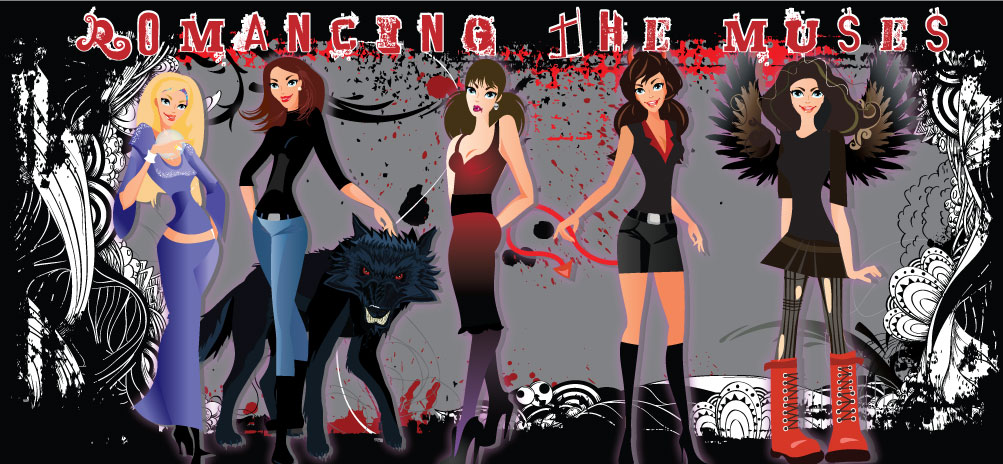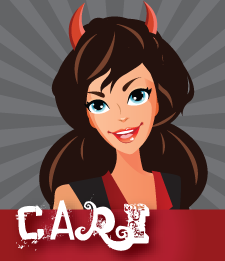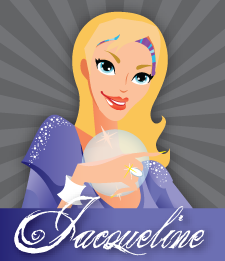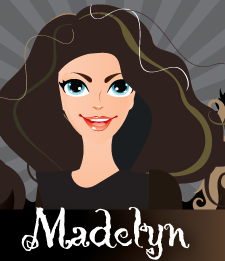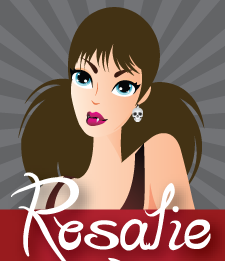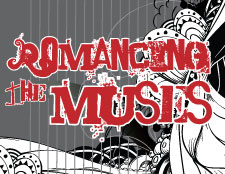Note from Romancing the Muses: Our thoughts and prayers are with everyone in Hurricane Irene’s warpath. Please stay safe.
Simultaneous submissions. Most all publishers, on their submission information page, include a note about their policy regarding simultaneous submissions. It’s rare nowadays to find a publisher that all-out states they don’t want a manuscript if it’s being considered elsewhere, but even then you want to be careful to whom you submit if you’re planning on more than one publisher.
Here’s the rub. Sometimes your manuscript resonates with more than one publisher, and even more so, sometimes the publisher’s response time is a little off. Sometimes when you hunker down for a 12-16 week wait, you hear something within ten days. And then you’re in a pickle.
Yes, this is a personal story. I completed a manuscript about six weeks ago that I figured I’d be lucky if anyone wanted, since it’s darker and has elements of dubious consent. Well, blow me down. I got two offers on the same freakin’ day, each from a publisher I’d be fortunate to have behind the manuscript. So obviously, the question became…which one do I choose?
Granted, there was nothing wrong with being in this situation, especially since I had alerted both houses that the manuscript was being considered elsewhere. The trouble came in playing the “pick the publisher” game, weighing the pros and cons, and knowing that no matter which venue I chose, I’d always be chased with the question of “what might have been?”
I’m not going to preach against simultaneous submissions, because even though right now I have promised my crit partners and myself to never put myself in that situation again, I know I’m impatient. I know I don’t want to play the waiting game just to receive a rejection letter, then start all over with another waiting game. My point is this: be careful what you wish for. It’s awesome, yes, knowing your manuscript is in demand…but saying no to someone isn’t easy.
Monday, August 29, 2011
I never make a complaint, 'till it's too late for restraint
Friday, August 26, 2011
Are you a perfectionist?
I think all writers are, to some extent. It’s hard not to worry when you have something that’s going to be on the shelves forever, virtually or otherwise. Your stories will be hopefully read, and with that comes dissection. And then the stress begins. Will people understand what I’m trying to say? Will they even care?
Sometimes that worry’s healthy and productive; sometimes it causes a writer’s production to grind to a halt. Perfectionism is one of the biggest creativity killers I’ve faced. You’re so stressed that every word must be “right” you lose the ability to even get words down. I’ve suffered from this myself—often, in fact. Especially when I’m working on something that scares me a bit because it’s out of my comfort zone and I really want things to go a certain way...i.e. I’m focused more on the end result than the story. And the story’s the thing. Without giving it all your attention, it becomes a lot harder to write a meaningful piece. And if it’s not meaningful to you, if you’re not connecting with it, it becomes a lot more difficult to snag your readers’ attention as well.
Trusting the process is really tough in this now-now-now society. We want results yesterday, but building a story takes time. If you rush it, likely you’ll wish later on you hadn’t. Deadlines must be met—that’s a given. Even so, for today, I’m trying to focus on the book I’m writing, the characters I’m breathing life into on the page, and letting that be enough. The rest will happen when it will.
Are you a perfectionist, with writing or otherwise? Or have you wisely figured out how to let go and go with the flow? (If so, man, do I envy you!)
Wednesday, August 24, 2011
Better Late Than Never!
I almost didn't get to post today's blog. My apologies. It's been insane at the casa, which means time is short.
As many of you know this year I attended Authors After Dark. It was exciting to meet readers, authors, and publishers at the event. There were multiple opportunities to sit and listen on the panels available, as well as mingle with people that inspire you. I was awed by many of the authors I met for the first time (and I won't name drop, although I'm very tempted!), which brings me to the topic of the blog.
Your brand.
Once an author's brand would probably be a symbol--not the authors themselves. It was about the books, the material, the WORK; not the person behind the screen. That has changed. It's the time of the internet. Connecting with authors, publishers, and agents is as easy as sending an email. What does that mean? Pretty simple. An author has to be aware of what he/she puts out there for the world to see. When you're under a microscope of sorts--and you have to pay your bills--it's best to think before you react. No longer can you vent your frustrations without ramifications. Once something has been said online (and boy, have I learned this lesson) it's there 4-eva. No going back, folks. The WWW has a permanent paper trail.
Once I was extremely vocal about certain issues. Now? Not as much. It doesn't mean my opinions have changed, it just means I've learned it doesn't really help to pull out the soapbox when those listening haven't done anything wrong. Don't misunderstand, I think everyone is entitled to a good speech from time to time. I just approach everything thinking:
How will I feel about what I've said a week from now? A year?
If I'm okay with it, then usually it's okay to say my piece. If not, I'll let it go. The same can be said for the conversations you have online, the relationships you form with others, and how you market yourself and your work. While some people have no qualms about sharing certain information or presenting an in-your-face-attitude, I truly feel an author can--and will--lose readers if they are unapproachable or offensive. With the way the writing industry is evolving, it's good business sense to remain as professional (and gracious as possible).
It's time for me to jet! As always, the eye candy of the week. I shamelessly stole this image from the awesome author and Twizzler sharer I met at AAD, Allison Pang.
As many of you know this year I attended Authors After Dark. It was exciting to meet readers, authors, and publishers at the event. There were multiple opportunities to sit and listen on the panels available, as well as mingle with people that inspire you. I was awed by many of the authors I met for the first time (and I won't name drop, although I'm very tempted!), which brings me to the topic of the blog.
Your brand.
Once an author's brand would probably be a symbol--not the authors themselves. It was about the books, the material, the WORK; not the person behind the screen. That has changed. It's the time of the internet. Connecting with authors, publishers, and agents is as easy as sending an email. What does that mean? Pretty simple. An author has to be aware of what he/she puts out there for the world to see. When you're under a microscope of sorts--and you have to pay your bills--it's best to think before you react. No longer can you vent your frustrations without ramifications. Once something has been said online (and boy, have I learned this lesson) it's there 4-eva. No going back, folks. The WWW has a permanent paper trail.
Once I was extremely vocal about certain issues. Now? Not as much. It doesn't mean my opinions have changed, it just means I've learned it doesn't really help to pull out the soapbox when those listening haven't done anything wrong. Don't misunderstand, I think everyone is entitled to a good speech from time to time. I just approach everything thinking:
How will I feel about what I've said a week from now? A year?
If I'm okay with it, then usually it's okay to say my piece. If not, I'll let it go. The same can be said for the conversations you have online, the relationships you form with others, and how you market yourself and your work. While some people have no qualms about sharing certain information or presenting an in-your-face-attitude, I truly feel an author can--and will--lose readers if they are unapproachable or offensive. With the way the writing industry is evolving, it's good business sense to remain as professional (and gracious as possible).
It's time for me to jet! As always, the eye candy of the week. I shamelessly stole this image from the awesome author and Twizzler sharer I met at AAD, Allison Pang.
Monday, August 22, 2011
Don't Cross The Streams

In Season One of The West Wing (one of the greatest shows ever, by the way), President Bartlet, while lecturing his youngest daughter about security detail, sprouts off a horrifying scenario to drive his point home. Since Aaron Sorkin is one of my favorite writers, I’m going to let you guys read this for yourselves.
ZOEY: We talked about this. I'm entitled to this part of my life.
BARTLET: You're getting this part of your life.
ZOEY: I'm entitled to a normal...
BARTLET: Oh please.
ZOEY: Don't 'oh please' me.
BARTLET: Look, the Secret Service...
ZOEY: The Secret Service should worry about you getting shot.
BARTLET: They are worried about me getting shot. I'm worried about me getting shot. But that is nothing compared to how terrified we are of you. You scare the hell out of the Secret Service Zoey, and you scare the hell out of me too. My getting killed would be bad enough, but that is not the nightmare scenario. The nightmare scenario, sweetheart, is YOU getting kidnapped. You go out to a bar or a party in some club, and you get up to go to the restroom, somebody comes up from behind, puts their hand across your mouth, and whisks you out the back door. You're so petrified, you don't even notice the bodies of two secret service agents lying on the ground with bullet holes in their heads. Then you're whisked away in a car.
It's a big party with lots of noise, and lots of people coming and going. And It's a half hour before someone says, 'Hey where's Zoey?' Another 15 minutes before the first phone call. Another hour and a half before anyone even THINKS to shut down all the airports. Now we're off to the races. You're tied to a chair in a cargo shack, somewhere in the middle of Uganda. And I'm told that I have 72 hours to get Israel to free 460 terrorist prisoners. So I'm on the phone pleading with Benjamin and he's saying, 'I'm sorry Mr. President, but Israel simply does not negotiate with terrorists, period. It's the only way we can survive.' So now we've got a new problem, because this country no longer has a commander in chief, it has a father who's out of his mind because his little girl is in a shack somewhere in Uganda with a gun to her head. DO YOU GET IT?!
For anyone watching (or reading) who then thinks, “Hey, this would be a pretty neat idea!” Well, you weren’t the only ones. Sorkin has admitted he wanted to write that very scenario immediately after the scene concluded. This isn’t surprising. Rules are almost always established to be broken, though I honestly don’t know if that’s just plot device or a combination of humans’ natural tendency to push to see just how far we can go. I certainly know I’ve written rules that I had no intention of breaking. It just happened that way. You start with a basic no-no and the devil in your mind asks, “Well, what WOULD happen? And how could you make it work?”
These clues can be subtle or obvious—it depends on which way you go. Anyone could tell you, even before watching Gremlins, that the rules of “Don’t get them near light, don’t get them wet, and don’t feed them after midnight” would be the focal point in the movie. Heck, Adam and Eve were told not to eat from the Tree of Knowledge, and what did they do?
Now, with certain movies and shows, rules are established with the clear intention of doing the opposite. Yet the driving force behind visual media are the writers who craft the stories together. Rules are made to be broken, and writers are made to test themselves—tease themselves—feed themselves with plots for something on the horizon. Be it “don’t feed them after midnight” or giving oneself a killer plot arc without realizing it.
Plot-driven writers strive to break the rules and see how the world can be altered or challenged. Just make sure you have a plan on getting out. Otherwise, you’ll find yourself in a very strange place.

Monday, August 15, 2011
The Song Remains The Same
This has been discussed in the past, but sometimes refresher courses are necessary, if only for the sake of hammering it in.
The publishing industry is very interesting right now. In moving forward into a new generation of e-readers and royalty-based online publishers, unagented authors now enjoy opportunities and even benefits over those who submit their work to larger presses. Sites like Amazon that pioneered e-reader technology, and while many mainstream houses are trending toward ebooks, the time has never been better for authors without publishing experience to dip their toes in the water. That’s how I got here. I had absolutely zero experience publishing, but I loved writing and being an actual published author was pretty much my main ambition. So I submitted, and I got accepted.
I was one of the lucky ones. You should never expect it to be that easy. Just because publishing houses are opening their doors to unknowns and unrepresenteds doesn’t mean you’re in. Quality still matters. Story still matters. Ensuring your story fits their house standards and expectations still matters. A rejection doesn’t necessarily mean your writing isn’t good, rather the story itself isn’t right for that publisher. Right now, the trend seems to be more toward form rejection letters rather than a lengthy explanation, which saves face for the publisher if the author gets belligerent. However, should the acquisitions editor take the time to explain how or why certain aspects of your manuscript didn’t work, take it, absorb upon it, and reference it when you next submit. Also, thank them for their time and consideration.
What works for Publisher A won’t necessarily reflect what works for Publisher B, C, and D. Some houses specialize in GLBT, where others have an emphasis in ménage, BDSM, interracial romance, paranormal, and so forth. Look at the material that has been accepted and do your homework. Read books published by the place you’d most like to see your work. And most importantly, even if you do all these things and the publisher still rejects you, don’t lose heart. Taste is subjective, and larger e-pubs typically have more than one editor reading new submissions, and different people react differently to different manuscripts.
No matter what, don’t take a rejection personally. To you, your manuscript is your sweat, blood, and tears. To a publisher, it’s just the next in a long line of submissions.
The publishing industry is very interesting right now. In moving forward into a new generation of e-readers and royalty-based online publishers, unagented authors now enjoy opportunities and even benefits over those who submit their work to larger presses. Sites like Amazon that pioneered e-reader technology, and while many mainstream houses are trending toward ebooks, the time has never been better for authors without publishing experience to dip their toes in the water. That’s how I got here. I had absolutely zero experience publishing, but I loved writing and being an actual published author was pretty much my main ambition. So I submitted, and I got accepted.
I was one of the lucky ones. You should never expect it to be that easy. Just because publishing houses are opening their doors to unknowns and unrepresenteds doesn’t mean you’re in. Quality still matters. Story still matters. Ensuring your story fits their house standards and expectations still matters. A rejection doesn’t necessarily mean your writing isn’t good, rather the story itself isn’t right for that publisher. Right now, the trend seems to be more toward form rejection letters rather than a lengthy explanation, which saves face for the publisher if the author gets belligerent. However, should the acquisitions editor take the time to explain how or why certain aspects of your manuscript didn’t work, take it, absorb upon it, and reference it when you next submit. Also, thank them for their time and consideration.
What works for Publisher A won’t necessarily reflect what works for Publisher B, C, and D. Some houses specialize in GLBT, where others have an emphasis in ménage, BDSM, interracial romance, paranormal, and so forth. Look at the material that has been accepted and do your homework. Read books published by the place you’d most like to see your work. And most importantly, even if you do all these things and the publisher still rejects you, don’t lose heart. Taste is subjective, and larger e-pubs typically have more than one editor reading new submissions, and different people react differently to different manuscripts.
No matter what, don’t take a rejection personally. To you, your manuscript is your sweat, blood, and tears. To a publisher, it’s just the next in a long line of submissions.
Monday, August 8, 2011
You've got to ask yourself one question: 'Do I feel lucky?' Well, do ya punk?
On Friday night, while sitting in the media center at the fairgrounds, I received some exciting news regarding one of my manuscripts. I immediately began flailing—both internally and externally—and jumped across the room in excitement. Nikki London was with me, as we always babysit the media center together when the fair is in town, and when I told her I expected this particular manuscript to be rejected, her response was, “OMG, really?” See, as my BFF and one of my CPs, she naturally thinks the sun shines out my ass when it comes to all things writing-oriented. When I explained my reasons for doubting the manuscript would be accepted, her response was something along the lines of, “Well, if someone like you gets nervous about your writing, I guess it’s even more okay that I do.”
Understand, Nikki London has been my bestie for over a decade—has has been mentioned in other posts—thus she is a little blinded when it comes to an opinion of my awesomeness. Regardless, this sentiment surprised me. When it was echoed elsewhere, I saw a pattern emerging.
Everyone has doubts. In our industry especially, doubts are commonplace. Most of us aren’t household names, and unless you’ve had incredible luck each and every time you’ve hit “send” on a submission, most of us have dealt with rejection. Once you send a manuscript to a particular publishing house, you play the waiting game with fate. Who, of the acquiring editors, will select your work for the inaugural read? Some places have just one such editor, so if you get in once because he or she likes your voice, you might feel more comfortable submitting again. Sometimes you submit directly to your editor when you’re in-house, and other times you use the same system you would if this were your first rodeo. In those instances, it just depends on who picks up your work and how it resonates with them. What works for one editor might dramatically turn off another. Regardless, no matter if it’s your first time or one hundred and first time, feeling anxious is normal, and likely better for your ego than thinking your shit don’t stink. That way when you do get accepted, it’s like rediscovering an old song and remembering why you loved it in the first place.
So, yes, Virginia, we published authors live with the same fear as the rest of you. At least when I celebrate a new contract, it’s completely genuine. No matter how seasoned you are or how many titles you have to your name, there is someone out there who might say no. You better just hope your manuscript doesn’t land on their desk.
Understand, Nikki London has been my bestie for over a decade—has has been mentioned in other posts—thus she is a little blinded when it comes to an opinion of my awesomeness. Regardless, this sentiment surprised me. When it was echoed elsewhere, I saw a pattern emerging.
Everyone has doubts. In our industry especially, doubts are commonplace. Most of us aren’t household names, and unless you’ve had incredible luck each and every time you’ve hit “send” on a submission, most of us have dealt with rejection. Once you send a manuscript to a particular publishing house, you play the waiting game with fate. Who, of the acquiring editors, will select your work for the inaugural read? Some places have just one such editor, so if you get in once because he or she likes your voice, you might feel more comfortable submitting again. Sometimes you submit directly to your editor when you’re in-house, and other times you use the same system you would if this were your first rodeo. In those instances, it just depends on who picks up your work and how it resonates with them. What works for one editor might dramatically turn off another. Regardless, no matter if it’s your first time or one hundred and first time, feeling anxious is normal, and likely better for your ego than thinking your shit don’t stink. That way when you do get accepted, it’s like rediscovering an old song and remembering why you loved it in the first place.
So, yes, Virginia, we published authors live with the same fear as the rest of you. At least when I celebrate a new contract, it’s completely genuine. No matter how seasoned you are or how many titles you have to your name, there is someone out there who might say no. You better just hope your manuscript doesn’t land on their desk.
Monday, August 1, 2011
The Bear Necessities of Life
In high school, my friend Nikki London and I attended a local writing camp. It took place right after term ended and lasted four to five days. The camp was hosted at a local university; we bunked overnight in various dorm halls, had all meals provided, attended guest author lectures, performed any number of writing exercises, and ultimately submitted five to seven pages of short story or poems for a final compilation. During this time, over one of the writing exercises, Nikki and I began working on something that we are still working on to this day, though it blossomed into something we never anticipated.
The project in question isn’t anything we view as publishable. In fact, I believe we’d be sufficiently mortified were it released to the public with our names attached to it. That doesn’t mean we are ashamed—it’s rather something silly and broad and serious all at the same time, and we turn to it whenever we need a break from serious writing. It’s comforting to me, at least, to have something I can write and keep the creative juices flowing without worrying about how it sounds, and strangely, some of the best writing I’ve accomplished was through not giving a damn how good it reads.
In an addendum to my post last week, it is important to give yourself a break; that doesn’t necessarily mean to take a break from writing. I’ve been on a hot streak for nearly a year now in terms of what I’ve produced, and I don’t intend to slow down. Yet I will admit I felt, alongside the typical excitement, a great surge of relief when I saw Nikki had delivered new material on our endless WIP. This might seem strange to other writers—the idea of putting so much time and energy into a writing project not intended for publication—but it works for us. We enjoy discussing where our nonsensical, fantastical, awesome amazing plot of awesome (yes, it warrants two awesomes) will go. We are our target audience, and we love every second. Not only has it been one of the many thing that has maintained our close friendship over the years, it provides us both with a break from writing…with writing.
I strongly urge all authors, when feeling the pressure from their WIPs, to sit down and write something for yourself. It doesn’t matter what, just as long as you have fun while doing it. It could be something like an alternative ending to Gone with the Wind or an off-camera scene from Jersey Shore. If you’ve always wanted to write a ménage, start writing one, but for you and no one else. Personally, I’d go with the alternative ending to Gone with the Wind. The other sounds too much like real work, and the point of this task is to have a little fun.
The project in question isn’t anything we view as publishable. In fact, I believe we’d be sufficiently mortified were it released to the public with our names attached to it. That doesn’t mean we are ashamed—it’s rather something silly and broad and serious all at the same time, and we turn to it whenever we need a break from serious writing. It’s comforting to me, at least, to have something I can write and keep the creative juices flowing without worrying about how it sounds, and strangely, some of the best writing I’ve accomplished was through not giving a damn how good it reads.
In an addendum to my post last week, it is important to give yourself a break; that doesn’t necessarily mean to take a break from writing. I’ve been on a hot streak for nearly a year now in terms of what I’ve produced, and I don’t intend to slow down. Yet I will admit I felt, alongside the typical excitement, a great surge of relief when I saw Nikki had delivered new material on our endless WIP. This might seem strange to other writers—the idea of putting so much time and energy into a writing project not intended for publication—but it works for us. We enjoy discussing where our nonsensical, fantastical, awesome amazing plot of awesome (yes, it warrants two awesomes) will go. We are our target audience, and we love every second. Not only has it been one of the many thing that has maintained our close friendship over the years, it provides us both with a break from writing…with writing.
I strongly urge all authors, when feeling the pressure from their WIPs, to sit down and write something for yourself. It doesn’t matter what, just as long as you have fun while doing it. It could be something like an alternative ending to Gone with the Wind or an off-camera scene from Jersey Shore. If you’ve always wanted to write a ménage, start writing one, but for you and no one else. Personally, I’d go with the alternative ending to Gone with the Wind. The other sounds too much like real work, and the point of this task is to have a little fun.
Subscribe to:
Comments (Atom)
